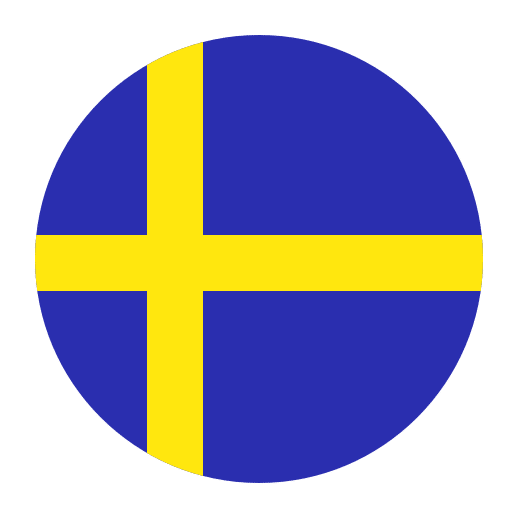Sweden is known for its high quality of life, innovative industries, and progressive work culture. If you’re planning to work in Sweden or with Swedish colleagues, learning some key Swedish vocabulary for the workplace can be incredibly beneficial. Whether you’re aiming to integrate better into a Swedish company, or you simply want to show your colleagues that you’re making an effort to learn their language, this guide will help you get started.
Basic Workplace Vocabulary
The first step to mastering Swedish for the workplace is to get a handle on some basic vocabulary. These words and phrases will help you navigate day-to-day conversations and tasks in a Swedish office environment.
- Arbetsplats – Workplace
- Kontor – Office
- Chef – Boss
- Anställd – Employee
- Kollega – Colleague
- Möte – Meeting
- Projekt – Project
- Uppgift – Task
- Deadline – Deadline
- Rapport – Report
- Dokument – Document
- Avdelning – Department
- Team – Team
Common Phrases and Expressions
In addition to individual words, you’ll find it helpful to learn some common phrases that are used frequently in Swedish workplaces.
- Hur kan jag hjälpa dig? – How can I help you?
- Kan vi boka ett möte? – Can we schedule a meeting?
- Jag behöver din hjälp med detta. – I need your help with this.
- Vad är deadline för detta projekt? – What is the deadline for this project?
- Kan du skicka mig rapporten? – Can you send me the report?
- Var hittar jag dokumentet? – Where can I find the document?
- Jag arbetar i marknadsföringsavdelningen. – I work in the marketing department.
- Vi måste avsluta detta innan fredag. – We need to finish this before Friday.
Departments and Job Titles
Understanding the various departments and job titles within a company can help you better understand the structure and hierarchy of the workplace. Here are some common Swedish terms for departments and job titles:
- Ekonomiavdelning – Finance Department
- Marknadsföringsavdelning – Marketing Department
- Försäljningsavdelning – Sales Department
- Personalavdelning – Human Resources Department
- IT-avdelning – IT Department
- Produktionsavdelning – Production Department
- Forsknings- och utvecklingsavdelning (FoU) – Research and Development Department (R&D)
Job Titles:
- VD (Verkställande direktör) – CEO (Chief Executive Officer)
- Ekonomichef – CFO (Chief Financial Officer)
- Marknadschef – Marketing Manager
- Försäljningschef – Sales Manager
- Personalchef – HR Manager
- IT-chef – IT Manager
- Produktionschef – Production Manager
- Projektledare – Project Manager
Communication and Meetings
Communication is key in any workplace, and understanding the vocabulary used in meetings and other forms of communication is essential. Here are some useful terms and phrases related to communication and meetings:
- Diskussion – Discussion
- Presentation – Presentation
- Agenda – Agenda
- Protokoll – Minutes (of a meeting)
- Beslut – Decision
- Åtgärd – Action
- Feedback – Feedback
- Förslag – Proposal
- Samarbete – Collaboration
- Kommunikation – Communication
- Telefonsamtal – Phone Call
- Videokonferens – Video Conference
Common Phrases in Meetings:
- Låt oss börja mötet. – Let’s start the meeting.
- Har alla fått agendan? – Has everyone received the agenda?
- Vad står på agendan? – What is on the agenda?
- Låt oss diskutera detta förslag. – Let’s discuss this proposal.
- Kan du sammanfatta vad som sades? – Can you summarize what was said?
- Vi behöver fatta ett beslut. – We need to make a decision.
- Vad är nästa steg? – What are the next steps?
- Jag skulle vilja ge lite feedback. – I would like to give some feedback.
Work-Related Activities
Understanding terms related to specific work-related activities can also be very useful. Here are some common activities and their Swedish translations:
- Arbeta – To Work
- Planera – To Plan
- Organisera – To Organize
- Koordinera – To Coordinate
- Analysera – To Analyze
- Utvärdera – To Evaluate
- Förbereda – To Prepare
- Följa upp – To Follow Up
- Implementera – To Implement
- Delegera – To Delegate
- Presentera – To Present
- Rapportera – To Report
- Sammanfatta – To Summarize
Common Phrases for Work-Related Activities
- Jag arbetar på ett nytt projekt. – I am working on a new project.
- Vi behöver planera för nästa kvartal. – We need to plan for the next quarter.
- Kan du organisera dokumenten? – Can you organize the documents?
- Vi måste analysera resultaten. – We need to analyze the results.
- Jag ska förbereda en presentation. – I will prepare a presentation.
- Kan du följa upp med kunden? – Can you follow up with the customer?
- Vi behöver implementera en ny strategi. – We need to implement a new strategy.
- Jag ska rapportera till chefen. – I will report to the boss.
Workplace Culture
Swedish workplace culture is known for being egalitarian, collaborative, and focused on work-life balance. Here are some terms that you might find useful when discussing workplace culture:
- Arbetsmiljö – Work Environment
- Balans mellan arbete och fritid – Work-Life Balance
- Fika – Coffee Break
- Jämställdhet – Equality
- Respekt – Respect
- Samarbete – Cooperation
- Hållbarhet – Sustainability
- Innovation – Innovation
Common Phrases Related to Workplace Culture:
- Vi har en bra arbetsmiljö. – We have a good work environment.
- Det är viktigt med balans mellan arbete och fritid. – It is important to have a work-life balance.
- Fika är en viktig del av vår kultur. – Fika is an important part of our culture.
- Vi strävar efter jämställdhet på arbetsplatsen. – We strive for equality in the workplace.
- Respekt är viktigt för oss. – Respect is important to us.
- Samarbete är nyckeln till framgång. – Cooperation is the key to success.
- Vi satsar på hållbarhet och innovation. – We focus on sustainability and innovation.
Practical Tips for Learning Swedish Vocabulary
Learning a new language can be challenging, but with the right approach, you can make significant progress. Here are some practical tips to help you learn Swedish vocabulary for the workplace:
1. Use Flashcards
Flashcards are a great way to memorize new vocabulary. You can create physical flashcards or use an app like Anki or Quizlet to help you review words and phrases regularly.
2. Practice with a Language Partner
Find a language partner who is a native Swedish speaker or someone who is also learning Swedish. Practicing with a partner can help you improve your speaking and listening skills.
3. Label Your Environment
Label items in your workspace with their Swedish names. This can help reinforce your vocabulary as you see and use these items daily.
4. Watch Swedish Media
Watch Swedish TV shows, movies, or news programs to get used to hearing the language in a natural context. Pay attention to how workplace vocabulary is used in different situations.
5. Use Language Learning Apps
Apps like Duolingo, Babbel, or Rosetta Stone can provide structured lessons and practice exercises to help you learn new vocabulary and grammar.
6. Keep a Vocabulary Journal
Write down new words and phrases you learn in a journal. Review your journal regularly to reinforce your memory.
7. Take a Language Course
Consider enrolling in a Swedish language course, either online or in person. A structured course can provide you with a comprehensive understanding of the language and help you stay motivated.
8. Immerse Yourself in the Language
If possible, spend time in a Swedish-speaking environment. Immersion is one of the most effective ways to learn a language quickly and naturally.
Conclusion
Learning Swedish vocabulary for the workplace can open up new opportunities and help you integrate more smoothly into a Swedish-speaking work environment. By familiarizing yourself with common words and phrases, you can communicate more effectively with your colleagues and better understand the structure and culture of the workplace. Use the tips provided to enhance your learning experience and make steady progress in mastering Swedish for professional use. Lycka till! (Good luck!)

